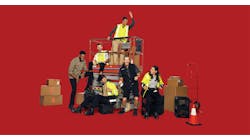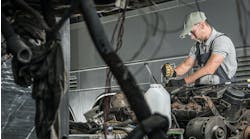Finding qualified candidates to fill a technician position is just the first step. Conducting phone and in-person interviews can provide details and additional insight into the candidate’s attitude and experience. There are some guidelines employers should consider when preparing and conducting these question-and-answer sessions.
Don’t cross a line
Before starting the interview process, know the questions you can and cannot ask. Asking personal questions can put the employer at risk of litigation if the candidate can prove they were discriminated against during the hiring process.
“Do not ask inappropriate, illegal questions in an interview,” says Kyle Holt, president, SP/2. SP/2 provides training courses for both potential employees and employers on proper interviewing techniques and best practices.
“We don't necessarily say, ‘Oh, here's some very creative questions to ask,’ we're far more concerned with making sure that companies are doing things the right way and not putting themselves in a situation where they can be sued for discrimination,” Holt explains.
Questions employers should NOT ask include any personal information, such as location of residence, marital status, number of children, religion, or age.
Give and take
Greg Settle, director – national initiatives for TechForce Foundation says it is important to actively listen to an interviewee’s responses and try not to interrupt.
“Remember that the goal in an interview is to learn as much about the candidate as you can,” Settle says. “Therefore, resist the temptation to do most or all of the talking. While you are talking, you can't be listening and therefore learning about the candidate.”
As part of listening, be sure to engage with the candidate by asking follow-up questions if necessary. “Don't be afraid to probe deeper into a specific issue,” Settle says. “You may learn more in ‘going deep’ with a couple of questions than staying at the surface level with five or six questions.”
Settle also suggests asking for further details, or an example, if an interviewer finds a response to a question to general or vague.
“If someone is giving you a general statement in response to a question, say ‘Can you give me an example of that?’” he suggests. “If they cannot provide any real-world examples from their own experience, then I would not give much credence to what they are telling you.”
In addition, get more details on gaps in employment and an explanation for leaving previous employers, especially if they have switched jobs often.
“It will help you get a feeling for whether there were valid reasons for them to move on, or if you may be dealing with someone who is never happy at a job and is always looking for ‘greener grass,’” Settle says.
Share company details
In addition to determining the qualifications of a potential employee, at some point during the interview process, be sure to share details about the organization. Settle suggests sharing details about company culture in a second interview.
“A second interview is a good time to focus more on how the candidate fits into your organization, once you have determined in the first interview that you would like to consider hiring that person,” he says. “That is the time to delve into your culture, talk about what the expectations are for employees, and what the key drivers are for your organization.”



